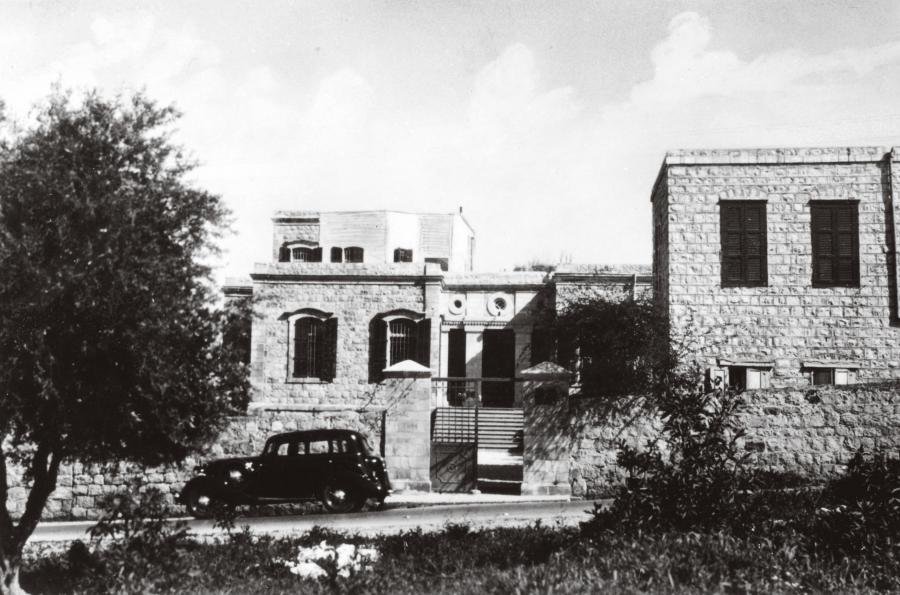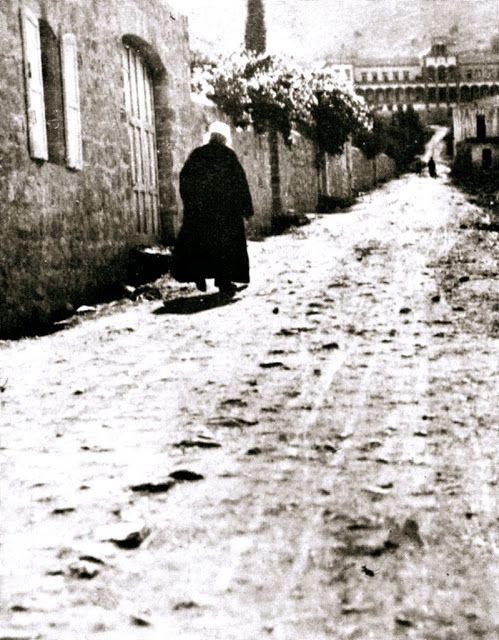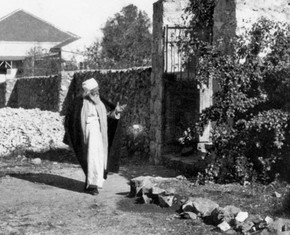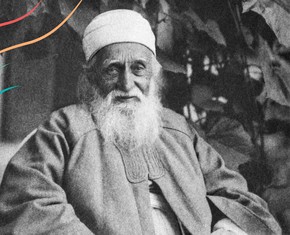The views expressed in our content reflect individual perspectives and do not represent the authoritative views of the Baha'i Faith.
 A pilgrimage can mean a journey to a physical place of worship or a journey of the heart — to a realization about the motivating purpose of life. At least once in a lifetime, Baha’is try to go on pilgrimage to visit the Baha’i Shrines on Mount Carmel, and to study the epic journey of the central figures of the Faith, exiled for their beliefs through the last half of the 19th century and buried far from their homeland.
A pilgrimage can mean a journey to a physical place of worship or a journey of the heart — to a realization about the motivating purpose of life. At least once in a lifetime, Baha’is try to go on pilgrimage to visit the Baha’i Shrines on Mount Carmel, and to study the epic journey of the central figures of the Faith, exiled for their beliefs through the last half of the 19th century and buried far from their homeland.
On one visit to these holy sites, I recalled a favorite quote from the Baha’i writings. We had entered the room of Abdu’l-Baha, the son of Baha’u’llah, the founder of the Faith, and I thought about this inspiring quote from Baha’u’llah that defines, for me, what it means to truly live the life of a Baha’i:
Be generous in prosperity, and thankful in adversity. Be worthy of the trust of thy neighbor, and look upon him with a bright and friendly face. … Be as a lamp unto them that walk in darkness, a joy to the sorrowful, a sea for the thirsty, a haven for the distressed, an upholder and defender of the victim of oppression. Let integrity and uprightness distinguish all thine acts. Be a home for the stranger, a balm to the suffering, a tower of strength for the fugitive. Be eyes to the blind, and a guiding light unto the feet of the erring. Be an ornament to the countenance of truth, a crown to the brow of fidelity…a breath of life to the body of mankind, an ensign of the hosts of justice, a luminary above the horizon of virtue, a dew to the soil of the human heart, an ark on the ocean of knowledge…a gem on the diadem of wisdom, a shining light in the firmament of thy generation, a fruit upon the tree of humility. – Epistle to the Son of the Wolf, p. 93.
Summer‘s humidity laid fresh dew on the skin of the visitors that day. As each one entered the sleeping quarters of Abdu’l-Baha, the breeze rustled the curtains, carrying the scent of roses. A sudden spiritual calm evoked the bowing of heads. Silent and immobilized, all gazed on the narrow, white-covered bed where Abdu’l-Baha had slept, and his tan leather shoes laid beside the bed.
We weren’t there just to see the personal effects of this great humanitarian. Rather, we felt moved and awed by the symbolism of the scene — because Abdu’l-Baha was known as the Exemplar, the one who set the best example of how to live the Faith’s teachings.
In his time, people heaped flowers upon Abdu’l-Baha’s door each morning. Instead of keeping them, he sent them to the local hospital. He would then resume his day’s work, bathing and feeding a leper rejected by others, answering a flood of letters of hope and anguish and religious search, tutoring the children of his faith’s persecutors, all while guiding the administration and architecture of a growing, yet still-persecuted new religion. He would visit the poor and write appeals to unjust world leaders and return at night having given away his coat. His joints ached from the arthritis suffered since his childhood days endured in a dank prison, condemned for his beliefs. The bed, the flowers, the shoes — these physical things emblazoned spiritual images in our minds of a lifetime spent serving a world thirsty for compassion, for the voice of change, for the perpetuation of selfless deeds and great movements.
All this must have made a night of prayer and sleep such a hard-won release. The white plastered walls and simple décor of the room belied the hard tests Abdu’l-Baha endured to live out his role in promoting progressive revelation, carrying Baha’u’llah’s teachings to the West, and traversing the wide swath of conflict seeded by a devastating World War to advance a message of universal peace. He did some good to each person whose path he crossed, whether in moments of service or spiritual intimacy or in speeches that moved huge audiences toward the goals of the age. How tired he must have been at the close of each long day, as he slipped his arthritic limbs under the sheets.
I have always loved a song whose translation means, “Take my hand, Abdu’l-Baha.” I silently spoke that plea as I studied Abdu’l-Baha’s room, so powerful in its simplicity. Suddenly, distinctly, the voice of my mentor reminded me, “If you want me to take your hand, walk in my footsteps.”
This challenge has always gripped me. Abdu’l-Baha, in his mercy, once defined a Baha’i simply as someone who loves and serves humanity. He joyfully offered this example so that the weakest or the strongest can follow it, according to their own capacity. We can only strive to walk in the footsteps of an Exemplar who truly lived such a life.


















Comments
Sign in or create an account
Continue with Googleor